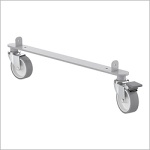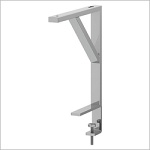Many of my clients who are in transition from one job to another are frequently thrown into the practice of an initial phone interview. Here are a number of key tips and learnings to make you crush it every time:
Control your space.
Optimally, try to ensure no noises or interruptions. Pick a room where you can safely close your door and separate yourself from the outside world for the entire interview. No ringing phones, no screaming kids, no barking dogs . . . nothing. Make it your fortress of solitude by taking steps to eliminate all interruptions or noises that might throw you (or your interviewer) off their game. If you have to — find another location to call if your home has become another DisneyWorld.
Stand & Walk Around.
Your best voice comes from good posture and the best posture is to stand. Your breathing, your voice and your energy are all affected when you stand. It allows you to move your hands to make a point if needed and move around to stay focused on listening to the question. That's why most singers stand — they enunciate better, they breathe better, and they project better. Even if your phone is corded, you can still walk around. But don't walk too far away from your notes!
Dress comfortably.
They aren't going to see you — so wear clothes that make you feel your best. If you want to dress up — go for it! If you want to wear sweats — by all means! Go naked — I don't care! I want you to feel your best so your entire personality flows through your receiver to the interviewer. One caveat — wear silent clothes and accessories. You don't want scratching, clinking, or tinkling noises to travel and possibly send a negative signal to the interviewer. So can the metal bracelets, ornate necklaces, or over-ornate earrings. Keep it simple and silent.
Don't answer the phone like a serial killer.
I can't tell you how many people I talk to answer their phones like Ebenezer Scrooge. Heeelllllooooo? No name, no real greeting, no energy, no excitement. What a great way to lock in a negative first impression! Here's a simple tip — answer every call like it's Publishers Clearinghouse calling to hand you a $100 million check. "Good Morning! This is Rich Gee — can I help you?" or "This is Rich Gee — how are you today?" The first six seconds of your call sets the stage for anyone on the other line — make it special.
Energize your voice.
Throughout the call, constantly monitor your energy and ensure it's flowing positively over the line. Even with tough or objectionable questions, pull back, pause and then answer with honest energy so the recipient receives it with gusto. Modulate your conversation by moving it all around the spectrum:
- Talk faster when you are truly excited about a topic or feel the interviewer finds it important. Pop your words.
- Slow down when you have to explain a complex situation or process with clarity.
- Talk slightly louder when making a point or agreeing with the interviewer. Laugh if you want.
- Power down your voice if the conversation turns serious. You don't want to come off totally flippant with a serious subject.
In the end, try to parallel your voice, tones, and enthusiasm with the interviewer as much as you can. Be positive, enthusiastic and add energy as frequently as possible.
Smile.
It's free. Try to smile the entire time while you're on the phone. There is a decided difference in sound/voice/energy between a person who isn't smiling and one who is. You can instantly tell if the person is smiling by the intonation of their voice. It's really easy to do — so do it.
Keep all your thoughts in front of you.
Hit Staples and purchase a white tri-fold foam core board. This will be a valuable tool to keep all of your:
- Talking points especially the key areas you feel the interviewer needs to understand.
- Prompts to keep your energy up - put a big "SMILE" sign right at the top to remind you to smile.
- Use post-it notes to help you with specific areas you'd like to cover during the interview and pull them off as you use them.
- If there is a complex list or topic — put it up there.
This board will allow you stay on point and cover all the elements you need to communicate without forgetting anything. In addition, your board will help you with your nervousness if asked a tough question — you have all the answers right in front of you!
Don't ask selfish questions.
Initial phone interviews are not the time to ask about specific compensation or logistic questions. Usually, the phone interview is a first pass to see if you initially qualify for the job's requirements and it's usually with someone from Human Resources. If you have a second phone interview with your hiring manager, you've probably passed the first level and now they want to know more about you, your accomplishments and your personality. They don't want to talk about specific dollars, hours, location, etc. Keep that to subsequent interviews (hopefully in person).
Prepare great questions to ask.
You need to ask a number of critical questions not only to get the right answers, but to also impress the interviewer with the topics you choose. Here's a great list of questions I offer to my clients — Click Here (PDF).
Catch red flags and prepare to lower them.
You know your gaps, your faults, and your black marks. Be prepared to address them quickly, succinctly, and put them to bed. Don't try to hide them — most good interviewers will pick them out immediately and hone in on them like a good dentist looking for gingivitis. Don't equivocate — address the question, answer it, and move on. Everyone has issues — you're not special.
Hope these tips have helped. Contact me if you use them or if you have any comments!







